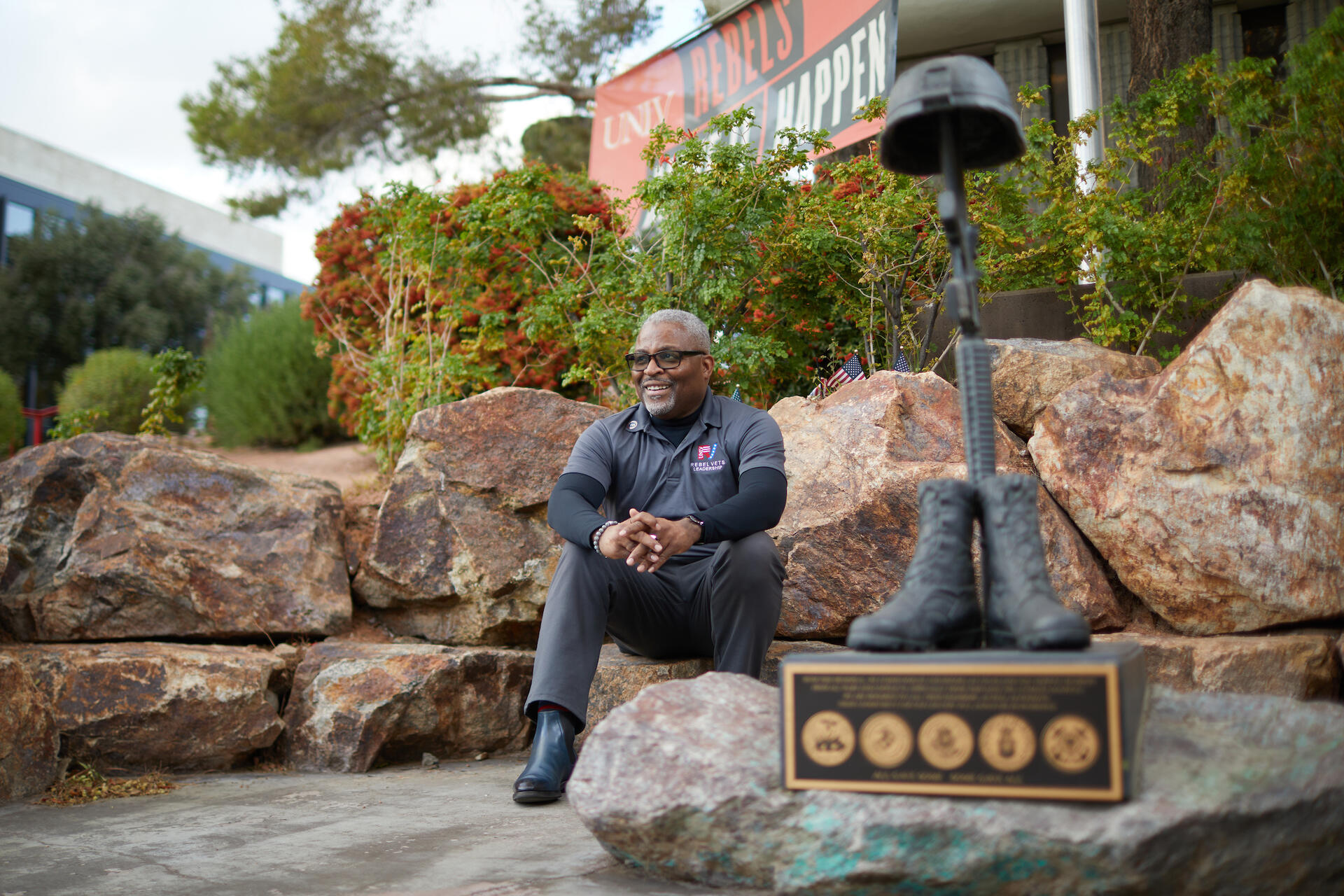Claude McDougal's Transition from Air Force to Campus Life at UNLV
Conceitos Básicos
Claude McDougal shares his journey transitioning from the U.S. Air Force to campus life at UNLV, highlighting the support he received as a student veteran.
Resumo
Claude McDougal's journey from military service to pursuing a business degree at UNLV showcases the challenges and triumphs faced by student veterans. His experience reflects the importance of community support and camaraderie in aiding veterans' transition to civilian and academic life. McDougal's involvement in student organizations like Rebel Vets demonstrates the value of finding a supportive network while pursuing higher education. The discipline and values instilled during his military service continue to guide him towards academic success and giving back to the community.
Personalizar Resumo
Reescrever com IA
Gerar Citações
Traduzir Texto Original
Para Outro Idioma
Gerar Mapa Mental
do conteúdo original
Visitar Fonte
www.unlv.edu
From Air Force to Campus Life: Claude McDougal's Journey
Estatísticas
"His journey to becoming a Rebel has been shaped by his five years on active duty in the U.S. Air Force."
"McDougal reflects on the support he's received as a student veteran."
"He worked as a crew chief on F-4 Phantom II fighter jets."
"Having excelled in a paralegal program at Adams State University in 2019."
"The support he received helped him not only pursue his degree but also become involved in various student organizations."
Citações
"I decided to become a board member and served as director of special projects. Now, I have decided to run for our organization’s president position." - Claude McDougal
"They remind me that, with a little bit of love, anything is possible." - Claude McDougal
"We are armed with veterans like Dwayne Gordon, associate director of veteran outreach, who I watch spend countless hours listening, coaching, and encouraging fellow veterans." - Claude McDougal
Principais Insights Extraídos De
by às www.unlv.edu 11-08-2023
https://www.unlv.edu/news/article/air-force-campus-life-claude-mcdougals-journey
Perguntas Mais Profundas
How can universities further enhance support systems for student veterans beyond existing organizations?
To enhance support systems for student veterans, universities can implement tailored academic advising services that consider the unique challenges faced by veterans transitioning from military to civilian life. Providing mental health resources specifically designed for veterans, such as counseling services specializing in PTSD and combat-related trauma, can also be beneficial. Additionally, creating mentorship programs where veteran students are paired with successful alumni who have a military background can offer valuable guidance and networking opportunities. Offering flexible class schedules or online learning options to accommodate the diverse needs of student veterans balancing academics with family and work commitments is another way universities can enhance their support systems.
What challenges do student veterans face that may not be adequately addressed in mainstream discussions?
Student veterans often face challenges related to reintegration into civilian life, such as feeling disconnected from younger peers due to age differences or struggling to relate their military experiences to non-veteran students. Mental health issues like PTSD and depression may go unnoticed or untreated if not properly addressed within academic settings. Financial concerns stemming from gaps in GI Bill coverage or delays in receiving benefits can also pose significant obstacles for student veterans pursuing higher education. Furthermore, navigating complex bureaucratic processes related to VA certifications and educational benefits adds an additional layer of stress that may not receive adequate attention in mainstream discussions about college experiences.
How can experiences like Claude McDougal's inspire non-veteran students to engage more actively with their communities?
Experiences like Claude McDougal's serve as powerful reminders of the resilience, determination, and sense of community fostered through military service. By sharing stories of overcoming adversity and finding purpose through service-oriented activities, non-veteran students can be inspired to engage more actively with their communities. McDougal's journey highlights the importance of supporting one another through challenging times and working towards common goals despite differences in backgrounds or experiences. Non-veteran students witnessing McDougal's commitment to giving back may feel encouraged to seek out volunteer opportunities, join campus organizations focused on social impact, or advocate for marginalized groups within their communities. Ultimately, stories like McDougal's demonstrate the transformative power of service and collective action in building stronger, more inclusive communities for all individuals involved.
0
